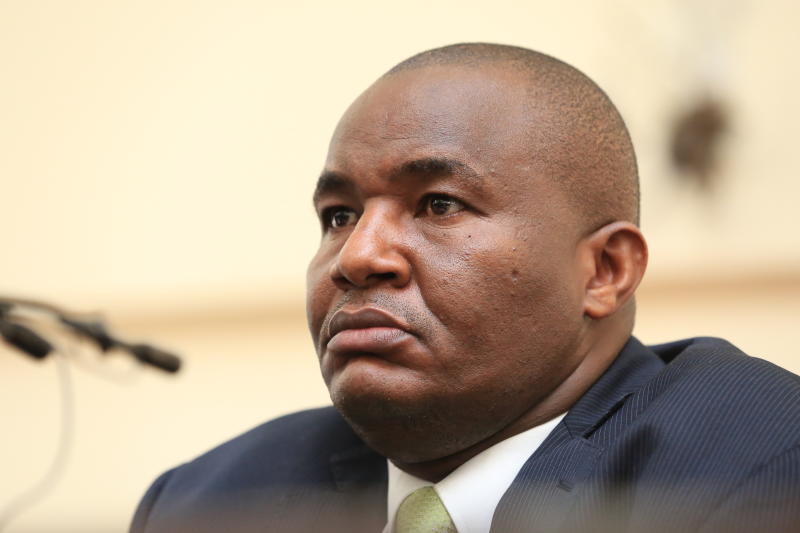
In a recent ruling, Justice Lawrence Mugambi of the High Court of Kenya upheld the government’s decision to deploy military forces to manage the Finance Bill 2024 protests, sparking significant debate over constitutional rights and the balance of power. This ruling has set a concerning precedent regarding the role of the military in civilian matters, highlighting several key issues that could have far-reaching implications for the country.
Constitutional Concerns
The KDF deployment for domestic law enforcement in Kenya raises serious constitutional concerns under the 2010 Constitution. Central to these concerns is the principle of separation of powers, which aims to prevent any branch of government, particularly the executive, from exerting undue influence or wielding excessive authority. Allowing the executive to deploy the military risks blurring this separation by involving a traditionally executive function in domestic law enforcement, potentially undermining the checks and balances crucial to democratic governance. This move could grant the executive branch expanded powers without adequate civilian and legal oversight, raising fears of overreach and potential abuse of authority.
Moreover, Justice Mugambi’s ruling on this matter underscores the importance of judicial review and oversight in upholding constitutional principles. While the judiciary plays a critical role in interpreting and enforcing the Constitution, ensuring that any KDF deployment aligns with constitutional norms and respects civil liberties is paramount. Such actions must be scrutinized to maintain public trust, accountability, and the integrity of Kenya’s democratic framework. Balancing national security needs with constitutional safeguards is essential to prevent any erosion of democratic principles and to uphold the rule of law in the face of security challenges.
Implications for Civil Liberties over KDF Deployment
Involving the military in situations typically handled by the police can have dire consequences for civil liberties. The military is trained for combat, not for managing civilian protests. There is a risk that such deployments could lead to increased human rights violations and state violence against protesters. This, in turn, could erode public trust in both the government and the judicial system.
Judicial Independence and Public Perception
The virtual court session during which the ruling was delivered was marred by technical difficulties, including microphone failures and delays. These issues were visible to the approximately 1000+ online attendees and could affect public perception of the judiciary’s efficiency and independence. The frustrations experienced by Justice Mugambi, as seen on the televised broadcast, underscored the challenges faced by the judiciary in handling high-profile cases transparently and effectively.
Political Ramifications
Justice Mugambi’s ruling permitting the Kenya Defence Forces – KDF deployment for domestic law enforcement is poised to intensify political tensions across Kenya. Opposition parties and civil society organizations are likely to perceive this decision as a significant power consolidation move by the executive branch. This perception could fuel widespread protests and deepen existing political divisions, potentially destabilizing the country’s fragile political landscape. The KDF deployment in Nairobi and other key regions to safeguard critical infrastructure and government facilities has already heightened public anxiety and exacerbated distrust among various political factions.
The visible presence of heavily armed soldiers and armored vehicles patrolling urban streets serves as a stark reminder of the increasing militarization of civilian spaces. Such militarization not only raises concerns about the erosion of civil liberties but also underscores broader anxieties about the concentration of power within the executive branch. Moreover, it risks escalating confrontations between security forces and civilian protesters, potentially leading to violent clashes and further polarization within Kenyan society. Balancing security imperatives with respect for constitutional rights and democratic principles is crucial to mitigating these tensions and ensuring peaceful political discourse in Kenya’s democratic journey.
Future Legal Precedents
Justice Mugambi’s ruling sets a precedent that could influence future cases involving the use of military force in civilian contexts. Legal experts and human rights activists fear that this decision might be used to justify similar deployments in the future, potentially normalizing military involvement in domestic issues. This could further blur the lines between military and civilian roles, making it harder to uphold democratic principles and protect human rights.
Conclusion
Justice Lawrence Mugambi’s ruling on the KDF deployment to manage protests marks a critical moment for Kenya. It raises significant concerns about constitutional rights, civil liberties, judicial independence, and political stability. As the country navigates these challenges, it is crucial for all branches of government to work together to uphold the rule of law and ensure that measures taken in the name of public order do not undermine democratic principles and human rights.
For more detailed information on the National Defence Act and the Constitution of Kenya, you can refer to The Constitution of Kenya, 2010 and Kenya’s National Defence Act.